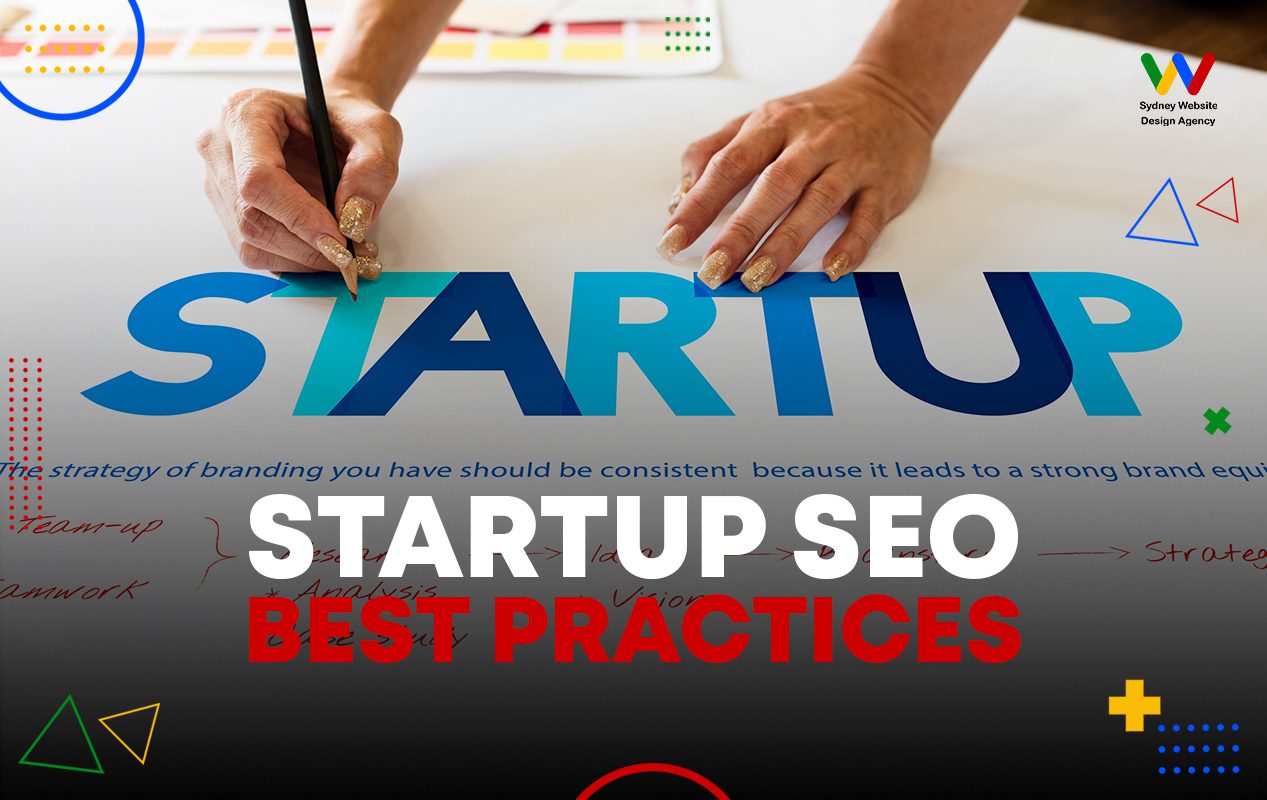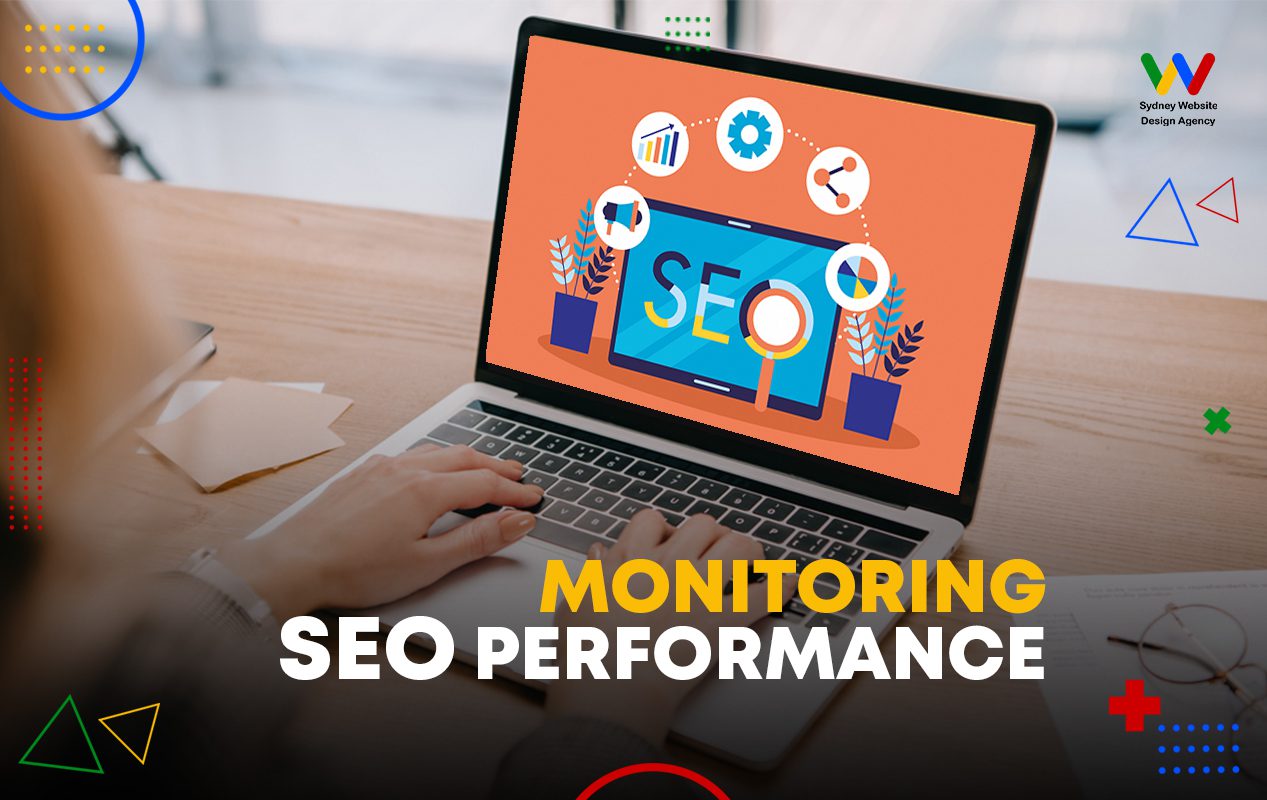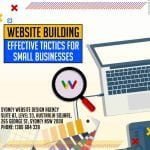As a startup, you’re focused on getting your business off the ground and may not have time to focus on SEO.
You know that organic traffic is important for your website, but you don’t know where to start or how to scale your efforts on a limited budget. SEO is one of the most influential channels for acquiring website visitors, but it can be difficult to do without the right tools and knowledge.
Introduction
Sydney Website’s SEO for Startups guide will teach you the basics of SEO and how to apply them to your website. Plus, we’ll show you how to track your progress and measure your results, so you can continue scaling your traffic month over month.
Sydney Website’s SEO for Startups services provides you with everything you need to know about SEO and how to scale and grow your organic traffic on a budget.
Table of Contents
- Best Time to Consider SEO for A Startup
- Main Goal of SEO for Startups
- What Are Search Engines Really Looking for?
- Stages of Search Engine Optimisation for Startups
- SEO Tools for Success
- Monitoring SEO performance
- Top Things to Avoid When Doing SEO
- Frequently Asked Questions (FAQ) about SEO for Startups
- Driving Traffic and Conversion To Your Startups is Not Always Expensive
Best Time to Consider SEO for A Startup

You have just started your small online business and have received a generous amount of patronage from your target market. Is this the end, or can you take your business further?
Or are you a business owner who is currently troubled with the sudden decrease in traffic directed to your website? Maybe it’s time for you to consider search engine optimisation.
If you’re uncertain whether SEO is right for your startup, consider these points:
A Sudden Decrease in Website Traffic
There are many reasons why a website may experience a sudden dip in website traffic. This can be due to out-of-date content on the website, technical issues on the website, and violating of Google’s guidelines. Without a great understanding of what SEO is, it would be challenging to recover from this.
One of the best ways that SEO can help improve website traffic is by improving the ranking of the site in search engine results pages (SERPs).
By improving the ranking, the site will be more likely to be clicked on by users, resulting in an increase in website traffic. Additionally, SEO can help target specific keywords and phrases that are relevant to the site, which can also result in an increase in website traffic.
To improve the ranking of a site, SEO practitioners need to understand how search engines work and what factors they use to rank websites. They also must be familiar with the latest trends and updates in the SEO industry so that they can keep up with the ever-changing landscape of search engine optimisation.
High Bounce Rates
Traffic is coming, but sales are not going up. What is wrong with your website? When this happens, your bounce rate skyrockets too.
What is the definition of a bounce rate? The percentage of people who leave your site after viewing only one page. You’ll get a better understanding of how well your website converts visitors into customers if you understand bounce rates. While every site will have bounces, exceptionally large bounce rates are frequently an indication of underlying problems.
High bounce rates can be due to misleading meta descriptions and tags, bad user experience on the website, slow loading pages, low-quality content on your website, and poor optimisation on mobile devices.
Any of these five reasons can make your customers look, but leave instead of pay. Without concrete SEO strategies in play, bounce rates can be very detrimental to your website.
With SEO for startups, you can address these issues, acquire more qualified leads to your website, and increase your sales in the process.
Getting Ahead of the Competition Takes Forever
You have a good product or service at a very reasonable price compared to your competitor. How come your target market is lining up on that business and not yours?
With the help of keyword research, technical SEO, and Google Analytics, you will be able to determine what makes your competitor ahead of you. Knowing the status of your website through these same SEO findings can help you create your startup’s SEO strategy.
SEO Reduces Cost on your PPC Ads
Paid advertising, on the other hand, might provide useful insights that may help you save money on clicks.
If you’re bidding on a high-converting keyword or a high search volume keyword and your website doesn’t have sufficient content to rank for it organically, you’re losing out on an opportunity. Even if ads appear on search results, your pages are not actually making a dent compared to your competitor’s search rankings.
Paid ads, on the other hand, are only effective as long as you are paying. When you stop paying, you lose your ability to generate leads for your business. Quality SEO may potentially eliminate the requirement of certain critical keywords.
You Want Measurable Return on Investment
Paid advertisements are very helpful for startup companies, but there’s a widespread issue with them: tracking their return on investment can be quite challenging.
Keyword research is an essential ingredient in any successful digital marketing campaign. Keyword strategy depends on the search engine’s own internal processes for determining what material to return and when, as well as the keyword’s popularity.
For example, Google uses algorithms and a variety of other ranking factors to determine the most relevant results for users’ queries. SEO services use tools like Google Search Console and Google Analytics to accurately measure metrics such as goal conversions and event tracking.
It’s easier than ever to collect all the data you need to assess how effective a marketing initiative is at generating money thanks to SEO and other forms of digital marketing.
If you’re not tracking conversions or revenue, you’re leaving money on the table. Fortunately, there are several easy ways to accurately track SEO progress and performance. With an SEO professional on your team, you can easily spot which paid ad campaigns are working and which ones are not, allowing you to invest more in ads that convert for your business.
Main Goal of SEO for Startups

The main goal of SEO for startups is to scale and grow organic traffic on a budget. This can be done by optimising website content, developing backlinks, improving keyword rankings, and using other marketing strategies. To give you a more comprehensive look, here are some of the main goals you can achieve with SEO for startups.
Increase web traffic
SEO for startups is a way to get more people to see your website. You do this by making sure that your website is seen as relevant by search engines and that your pages appear in search queries. This is done by optimising your website so that it appears as high as possible on search engine results pages (SERPs).
When a website’s organic traffic increases, its visibility improves, and it attracts more visitors. This can result in increased sales and conversions, as well as improved brand awareness. In addition, a higher volume of website traffic can help you to rank higher in search engine results pages (SERPs), resulting in even more traffic and exposure.
Grow brand awareness
There are many benefits to a brand gaining more brand awareness from its target market and audiences. When a brand becomes more visible and well-known, it can attract new customers, which can result in more sales and growth.
Additionally, a strong brand can help a company stand out from its competitors, which can lead to increased market share. With relevant content and a robust content strategy in place, a well-recognised brand can be more valuable when it comes time to sell or merge with another company.
Unfortunately, many startups and small businesses struggle to achieve these goals due to their limited budgets. However, there are a number of low-cost or even free SEO tips and tactics that can help brands increase their organic traffic and visibility. With search engine optimisation, brands can target the right type of audience, be found in relevant directories, and engage with key customer segments better.
Generate leads and sales
One of the great things about SEO is that it can generate leads and sales for a brand on a budget. By implementing some basic tactics, you can see an increase in your organic traffic and, as a result, more leads and sales.
Optimising landing pages with on-page SEO and off-page SEO tactics, it would be easier for Google to see what your website offers. With keyword research, publishing high-quality content, proper internal linking, and natural outbound linking can help your web pages rank higher in search queries. When they do, you increase the chances of your target market seeing your pages, attracting more leads and sales for your brand.
Increase website usability
Having a website that is easy to use and navigate can help people find what they are looking for quickly. This can lead to more people visiting your website, which can result in increased traffic and sales.
It’s critical to engage your target demographic. If they are pleased with what they see when they visit your website, they are more likely to convert into a client. They’ll click away from your site if they aren’t pleased. Increased rankings won’t help you grow your business if the user experience is poor. With SEO for startups, the focus is on making your website more visible and making it a worthy website for your target market to visit.
Improve search engine rankings
SEO empowers you to be the solution to potential consumers’ inquiries. In addition to having more exposure and traffic, SEO aids in establishing an authoritative voice in your industry. Authority is a precursor to brand trust, which leads to brand loyalty.
By improving a website’s position in search results, Google is aiming to provide its customers with the most relevant results possible. High ranks are critical for SEO since they result in more well-informed consumers. The more well-informed visitors and qualified leads your site attracts, the more successful it will be.
The fundamental objective of SEO is to increase your visibility in relevant online search results in order to generate more leads, sales, and money. In other words, the endgame of SEO is for your company’s success on the internet.
What Are Search Engines Really Looking for?

For someone new to the online industry, it can take time to get a grasp on what matters for search engines and what doesn’t. Experimentation and testing can be an option, but for startups with no budget, time, and resources to do so, this is not feasible.
So, it goes back to the problem. What do search engines look for when ranking websites in their search results?
There are several factors that search engines take into account when ranking websites in their search results. Some of the most important factors include the quality and relevance of the content on a website, the website’s authority and link popularity, and the user experience provided by the website.
One of the best ways to improve your website’s ranking in search results is to invest in SEO. However, SEO can be expensive and time-consuming, which isn’t always feasible for startups.
Stages of Search Engine Optimisation for Startups

SEO is a long-term investment that requires continual effort if you want to see results. It’s not a one-and-done process, and it’s essential to understand the different stages of SEO, so you can focus your efforts in the right areas.
There are three stages of SEO for startups – foundational, growth, and scaling.
Foundational SEO
This stage is all about laying the groundwork for future success. During this stage, you’ll work on optimising your website for Google’s algorithms and improving your site’s structure and content.
Growth SEO
Once your website is optimised, you’ll start to see traffic growth as you rank higher in SERPs for relevant keywords. This stage focuses on increasing your website’s exposure and driving more qualified traffic to your site.
Scaling SEO
Once you’ve achieved a certain level of traffic growth, it’s time to focus on scaling your SEO efforts to continue growing your traffic. This stage involves refining your strategy, expanding your reach, and building on the progress you’ve made in previous stages.
To make the most of your SEO efforts, here are some tips for each process, every stage must go through:
Keyword Research
Startup companies often have a limited budget, so it’s important to target the right keywords when doing SEO. The first step is to come up with a list of potential keywords that your target audience might use to find your site. You can use various tools to help you with this process, such as Google Ads Keyword Planner and Semrush.
Once you have a list of potential keywords, you’ll need to do some research to see which ones are the most relevant and have the lowest competition. You can use Google’s Keyword Tool to get a sense of how much competition each keyword has. The higher the competition, the harder it will be to rank high for that keyword.
You should also consider the relevance of each keyword to your business. Some keywords may be relevant but have too much competition, while others may not be as relevant but have less competition. It’s important to find the right balance between relevance and competition when selecting keywords for your SEO campaign.
Technical SEO Audit
A technical SEO audit is an essential step in improving your website’s organic traffic. By identifying and resolving any technical issues on your website, you can make it easier for Google and other search engines to crawl and index your site. This can help to improve your rankings and drive more traffic to your site.
As a startup, you may not have the budget for a full-fledged SEO campaign. However, there are many tactics you can use to improve your website’s SEO on a budget. Here are some tips:
Resolving any technical issues on your website can help to improve your organic traffic. A technical SEO audit can help you identify any such issues so that you can fix them.
Competitor Analysis
Performing effective competitor analysis is important for any startup website that wants to scale and grow its organic traffic. By understanding what your competitors are doing and how they’re performing, you can develop a plan to improve your website’s SEO and outrank them.
There are a few key things to look for when analysing your competitors:
Backlink Profile
Where are their links coming from? What kind of content is earning them links? You can use your competitor’s backlink profile as a guide for your link-building and outreach campaigns.
On-page SEO
Are they using the right keywords? Are their titles and meta descriptions optimised? Maybe these are just a few of the factors why your brand continues to fail to outrank your competitors.
Social Media Presence
How active are they on social media? What kind of content are they sharing? You share a target market with your competitors. See the types of content these audiences engage with. You can use this as a guide on what type of content to offer on your social media accounts too.
By looking at all of these factors, you can get a good idea of what strategies your competitors are using to rank well in search engines. Then, you can use that information to improve your website’s SEO and outrank them.
Strategy Development
SEO for startups can help you create a good strategy to grow your company. You can use SEO to make sure people know about your company and what you do. You can also use it to grow your traffic and get more customers.
Do your research. The first step to any good SEO strategy is research. You need to understand what keywords are popular and how to use them. You also need to understand your competition. Research can be time-consuming, but it’s worth it. With sufficient data from your research, you can create a more comprehensive and effective SEO strategy for your startup company.
On-Page SEO for Startups
On-page SEO is one of the most important tactics for startups to scale and grow their organic traffic on a budget. By optimising your website’s title tags, meta descriptions, header tags, images, and other elements, you can improve your website’s ranking in search engine results pages (SERPs) and attract more visitors.
On-page SEO is a great way to ensure that your website’s content is engaging and relevant to your target audience. Additionally, off-page SEO is influential for startups to build high-quality backlinks and increase their social media following.
Off-Page SEO for Startups
Off-page SEO is also critical for startups. This tactic involves optimising your website for backlinks, social media signals, and other indicators that tell search engines your website is popular and authoritative. By building high-quality backlinks and increasing your social media following, you can improve your website’s ranking in SERPs and attract more visitors.
SEO is an important part of any digital marketing strategy, but it’s especially important for startups. That’s because SEO can be a great way to scale your business on a budget. By focusing your efforts in the right areas, you can see a big return on investment from a small amount of effort.
Startup SEO best practices

Fortunately, there are many tactics that startups can use to scale and grow their organic traffic on a budget. Here are some of the most effective:
Publish high-quality content regularly.
One of the most significant things you can do to improve your website’s SEO is to publish high-quality content on a regular basis. Not only does quality content help your website rank higher in search results, but it also helps to build trust and credibility with your audience.
Optimise your website for your target keywords.
In order for your website to rank well for your chosen keywords, you need to make sure that those keywords are included in your website’s content and metadata. This includes your website’s title tags, meta descriptions, header tags, and alt text.
Promote your content on social media.
Social media is a powerful tool that can help to promote your content and improve your SEO. When you share your content on social media, you’re providing links back to your website, which helps to improve your link popularity. Additionally, social media can help to increase the reach of your content and get it in front of a larger audience.
Build high-quality backlinks to your website.
Link building is another important factor in SEO. In order for your website to rank well, you need to have high-quality backlinks from other websites. You can build backlinks by guest blogging, submitting articles to directories, and participating in forums and discussions.
Make sure your website is mobile-friendly.
More and more people are using mobile devices to access the internet, so it’s essential that your website is optimised for mobile. This includes having a responsive design that scales to fit different screen sizes, as well as ensuring that your content is easy to read and navigate on a mobile device.
Use Google Analytics to track your progress.
Google Analytics is a free tool that allows you to track your website’s traffic and performance. This is valuable data that can help you to understand what’s working well and identify areas for improvement.
By following these tips, you can scale and grow your organic traffic on a budget. However, it’s important to keep in mind that SEO is an ongoing process, so you’ll need to continuously work at it to maintain and improve your ranking in search results.
SEO Tools for Success

Startup owners often find themselves strapped for cash and time when it comes to marketing their business. However, investing in search engine optimisation (SEO) is one of the most effective ways to reach new customers and grow your business.
Fortunately, there are many paid and free online tools that can help you grow your organic traffic. These tools can be very helpful for startups on a budget.
One of the best free tools for SEO is Google’s own Webmaster Tools. This tool provides you with detailed information about your website’s visibility on Google search results pages. It also helps you identify and fix any errors that may be preventing your website from ranking high in search results. Below are some basic SEO for startup tools that you can use for your SEO campaigns.
Google Search Console
You may use Google Search Console to check and resolve server failures, site load problems, and security concerns such as hacking and malware. It can also be used to ensure that any site maintenance or changes you make are completed without issue with regard to search performance.
The Search Console also provides you with information that may assist you in developing or tweaking your SEO approach. The Search Console also offers crawl errors, indexing data, keyword ranking data, referring domains (inbound links), and mobile site performance reports.
Moz
Moz is an SEO and data management tool that allows companies to improve traffic, ranking, and exposure of their websites in search results. Site inspections, rank tracking, backlink analysis, and keyword search capabilities are among the most important features.
This tool helps local companies improve their online rankings and reputation by providing reviews, SEO, and a variety of other services.
Bright Local
BrightLocal offers advanced local SEO tools and reports that allow agencies and businesses to boost local rankings, increase traffic and leads from local search, and manage customer feedback and reputation.
BrightLocal provides marketers with a suite of tools to improve their local search rankings. BrightLocal is a must-have for marketers wanting to optimise their local search results. If you want to save time and money, then the BrightLocal platform should be in your local SEO toolkit.
Ubersuggest
Ubersuggest is ideal for startup businesses because it is free to use, and it offers a wide range of features that can help businesses grow their organic traffic. Ubersuggest can help businesses track their website’s search engine rankings, analyse their competitors, research keywords, and improve their website’s content. Ubersuggest is also effortless to use, so businesses can get started quickly and see results quickly.
Monitor SEO Performance

Startup businesses should continuously monitor their SEO performance to ensure they are on the right track. This can be done using various online tools and resources, such as Google Analytics, Google Search Console, and BrightLocal.
These tools can help you track your website’s overall traffic, including how much traffic is coming from organic searches. You can also see which keywords are driving the most traffic to your website. This information can help you determine which keywords to focus on in your SEO efforts.
It is important to keep track of how your website is doing in terms of search engine optimisation. This will help you figure out what you are doing well and what you need to improve on so that you can continue to grow your organic traffic.
10 Top Things to Avoid When Doing SEO

Search engine optimisation can be complicated for someone who is now equipped with knowledge and experience in this area. Together with the suggested techniques and tactics essential for successful SEO campaigns, there are several practices that one should avoid.
1. Avoid black hat SEO tactics. This can hurt your site’s ranking and visibility in the search engines.
2. Do not stuff your keywords into your content unnaturally. This will also hurt your site’s ranking and visibility.
3. Always pay attention to the basics. Make sure you are optimising your site for the search engines by using the right keywords, titles, and descriptions.
4. Get help from an experienced SEO professional to ensure that you are doing everything correctly and getting the most out of your SEO efforts.
5. Experiment and do tests to see what fits your brand’s needs. SEO is an ever-changing field, so it is important to experiment with different tactics to see what works best for your site.
6. Do not forget about mobile. With more and more people using mobile devices to access the internet, it is important to make sure that your site is optimised for these users.
7. Invest in Local SEO. If you want your business to be visible to people in your local area, then you need to focus on local SEO tactics.
8. Pay attention to your social media channels. Social media can be a great way to promote your content and build links back to your site.
9. SEO should not be your only focus. Make sure you are also utilising other marketing channels such as email marketing, pay-per-click advertising, and social media to drive traffic to your site.
10. Do not get discouraged. It takes time and effort to see results from SEO. Be patient and keep working at it, and you will eventually see the fruits of your labour.
Frequently Asked Questions (FAQ) about SEO for Startups
How should I go about link-building for my startup?
Start by creating a list of relevant, high-quality websites where you can post a guest blog article. Once you have your list, reach out to the site owners and pitch your idea. If they’re interested, be sure to include a link to your article once it’s published. Submit your site in directories. Lastly, use keyword-rich titles and descriptions when publishing content on your website or blog.
Can thin content rank for competitive keywords?
This is a question that many startup businesses face, as they often have limited resources to devote to SEO. While it may be more difficult to rank well with thin content, there are still some tactics that can help you scale and grow your organic traffic on a budget.
Google keeps changing the algorithm. Is it too hard to keep up?
There’s no doubt that Google’s algorithm is constantly changing, but that doesn’t mean that it’s impossible to keep up. In fact, with the right tactics in place, you can still grow your brand and build traffic to your website.
Is social media an SEO ranking factor?
Your target market is using social media. Although there is a continuous debate on whether it is an SEO ranking factor or not, social media signals help build the credibility of your brand.
Is it true that SEO efforts take at least 6 months to work?
No, SEO efforts do not have to take 6 months to work. Depending on the competitiveness of your industry and how well you execute your SEO strategy, you can see significant results in as little as 3 months. However, the most effective SEO campaigns take at least 6-12 months to really dial in and see the best results.
Is SEO too competitive for startups?
Yes, SEO can be competitive for startups. However, there are several tactics that you can use to scale and grow your organic traffic on a budget. Seeking help from SEO agencies like Sydney Website Design Agency can give you the edge that you need to get ahead of the competition.
Is SEO too expensive for startups?
Some of the most effective SEO tactics for startups include creating high-quality content, optimising your website for search engines, and building backlinks. These tactics can be implemented inexpensively and can help you achieve better search engine rankings, which will result in more website traffic.

Driving Traffic and Conversion To Your Startups is Not Always Expensive

If you’re a startup, then you know that every penny counts. And as your business grows and becomes more successful, it’s important to continue scaling your operations while keeping costs low. In this comprehensive guide to SEO for startups, we’ve outlined tactics that will help you grow your organic traffic on a budget – from keyword research and content creation to link building and competitor analysis.
By following these tips, you’ll be able to increase your website’s visibility in search engine results pages (SERPs) and drive more qualified visitors to your site.
So, what are you waiting for? Start implementing these strategies today and watch your business take off!




















































